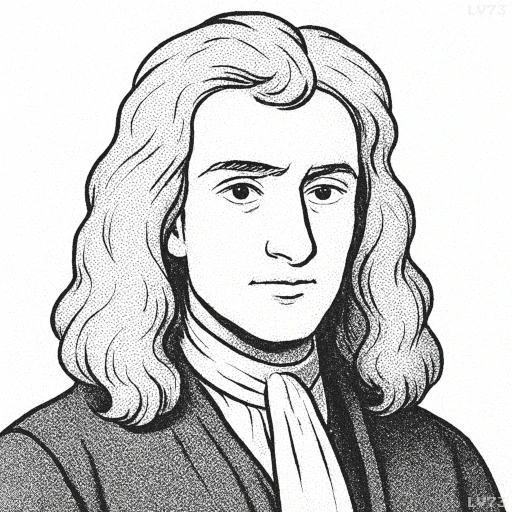“The motions which the planets now have could not spring from any natural cause alone, but were impressed by an intelligent Agent.”

- January 4, 1643 – March 31, 1727
- Born in England (UK)
- Natural philosopher, mathematician, physicist, astronomer, theologian
table of contents
Quote
“The motions which the planets now have could not spring from any natural cause alone, but were impressed by an intelligent Agent.”
Explanation
In this quote, Isaac Newton asserts that the motions of the planets cannot be explained purely by natural causes or mechanical forces alone. Newton suggests that the precise and orderly movements of the planets in their orbits must have been set in motion by an intelligent agent, or a divine creator. Newton is emphasizing that the universe, with its harmonious and predictable laws, reflects the work of a higher intelligence—a belief that aligns with his broader worldview. While Newton understood the forces that govern the planets’ motions, such as gravity, he believed that the initial impression of these motions and the order in the universe were the result of deliberate design by a divine being.
This perspective reflects Newton’s deeply religious views. He saw the laws of nature as evidence of a rational creator who established the universe according to consistent and understandable laws. Newton’s use of the term intelligent agent suggests that he believed the motions of the planets and the forces of the universe were not merely random or self-sustaining but were guided by a higher intelligence. In his time, this view was not uncommon—many early scientists saw their work as uncovering the design of the universe set by God, rather than ascribing natural processes to blind chance.
In modern times, while the scientific community typically explains planetary motion through gravitational forces and laws of physics, Newton’s belief in a divine intelligence behind the cosmos remains a reflection of the philosophical and theological debates about the nature of the universe. Some people still see the fine-tuning of the universe—its laws, order, and precise conditions for life—as evidence of a creator’s design, while others view these phenomena as the result of natural processes. Newton’s thoughts continue to inspire these discussions, bridging the realms of science and faith, and his conviction that the universe is governed by rational laws still resonates in modern cosmology.
Would you like to share your impressions or related stories about this quote in the comments section?
